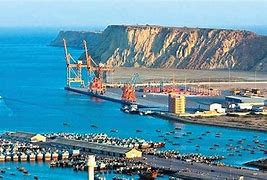In an effort to tackle pressing energy issues and foster economic development, Pakistan’s Power Division plans to propose a new electricity supply framework for Special Economic Zones (SEZs) under the China-Pakistan Economic Corridor (CPEC). The proposal aims to streamline electricity provision to SEZs and will be submitted to the Cabinet Committee on Energy (CCoE) for approval. Approval from the CCoE is anticipated soon.
Sources reveal that the Power Division has drafted a summary titled “Revision of Electricity Supply Mechanism for Special Economic Zones (SEZs)” for the CCoE’s endorsement. Key elements include:
- SEZs signing Power Purchase Agency Agreements (PPAAs) with DISCOs to ensure power supply for five years, extendable as needed.
- SEZs obtaining supplier-of-last-resort and distribution licenses from NEPRA for electricity supply and managing infrastructure within their premises.
- Compliance with NEPRA-approved regulations for procuring additional power.
The Special Economic Zone Act of 2012, amended in 2016, requires federal and provincial governments to provide essential utilities like electricity to SEZs. However, SEZs have struggled with unreliable power supply, delays in infrastructure, and challenges in meeting generation capacity requirements under NEPRA’s Section 23E. Ambiguities in the law have also delayed power connections from DISCOs, hindering industrial development.
A major issue is the lack of regulatory provisions enabling DISCOs to supply electricity to SEZs at a single point for resale, leading to higher tariffs for SEZs compared to DISCOs’ standard industrial rates. This disparity, highlighted in the Rashakai SEZ agreement, has created additional delays and financial burdens.
To address these issues, the Ministry of Energy collaborated with Chinese stakeholders to devise sustainable solutions. Two key options emerged:
- Option A: SEZs remain under the concerned DISCOs’ service area, with developers signing O&M agreements for infrastructure development, maintenance, and billing. Industrial consumers would be charged uniform tariffs, while developers receive an O&M fee approved by NEPRA.
- Option B: SEZs sign PPAAs with DISCOs for peak demand supply and acquire licenses from NEPRA for infrastructure management and additional power procurement per NEPRA regulations.
Following consultations with NEPRA, the Board of Investment, and other stakeholders, Option B was favored. NEPRA had already proposed amendments to licensing regulations in September 2024, paving the way for implementation.
The revised mechanism provides several benefits, including uninterrupted power supply, improved efficiency, and clarity in regulatory provisions. By enabling SEZs to manage their distribution infrastructure and secure supplier licenses, the framework aligns with NEPRA regulations and supports industrial growth in CPEC SEZs.
The Ministry of Energy stressed that this initiative not only meets statutory obligations under the SEZ Act but also boosts investor confidence by ensuring a reliable energy system.
The summary received broad support from stakeholders, including the Finance Division, NTDC, and KE, and the Ministry of Energy recommended approving Option B.
As Pakistan attracts both domestic and foreign investment through SEZs, this revised electricity supply framework addresses long-standing challenges and sets the stage for sustained economic growth.
Related Posts?
Pakistan to prioritize operation of SEZs under CPEC: minister

















